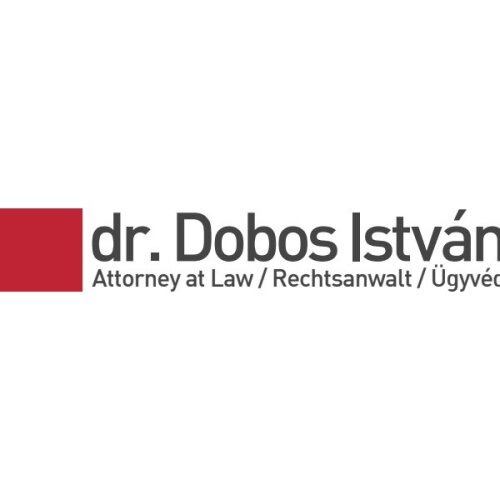Best Energy Regulatory Law Lawyers in Budapest
Share your needs with us, get contacted by law firms.
Free. Takes 2 min.
List of the best lawyers in Budapest, Hungary
About Energy Regulatory Law in Budapest, Hungary
Energy Regulatory Law in Budapest, Hungary focuses on the legal framework that governs the production, distribution, regulation, and consumption of energy resources, such as electricity, natural gas, and renewable energy. This area of law is shaped by both national legislation and European Union directives. Energy regulators in Hungary play a vital role in ensuring energy markets work efficiently, services are accessible and affordable for consumers, and operators comply with environmental and public safety standards. As Budapest is the economic heart of Hungary, with significant energy consumption and infrastructure, Energy Regulatory Law is especially important for businesses and residents alike.
Why You May Need a Lawyer
There are several common situations in which you may require legal assistance related to Energy Regulatory Law in Budapest. Businesses, investors, utility companies, and even individual consumers might need guidance when navigating compliance obligations, contracts, licensing procedures, and disputes. For example, a company entering the Hungarian energy market needs to understand complex licensing requirements, while energy producers or distributors must follow rules related to grid access and pricing. Consumers or businesses facing issues with service providers, billing disputes, or changes in regulations may also need legal support. A lawyer specializing in this field can help you comply with legal standards, avoid penalties, and protect your interests.
Local Laws Overview
Hungarian Energy Regulatory Law is primarily governed by the Act on Electric Energy and the Act on Natural Gas Supply, both of which are periodically updated to align with European Union energy rules. The Hungarian Energy and Public Utility Regulatory Authority (MEKH) oversees the licensing, supervision, and enforcement of energy laws. Local regulations detail the procedures for obtaining energy licenses, connecting to the power or gas grid, setting tariffs, and ensuring competition while safeguarding consumers’ rights. Special rules apply for renewable energy projects, energy efficiency measures, and cross-border operations within the EU. In Budapest, municipal policies may also influence the installation of energy infrastructure, requirements for building permits, as well as environmental standards.
Frequently Asked Questions
What is the role of the Hungarian Energy and Public Utility Regulatory Authority?
MEKH is the national regulatory body responsible for monitoring, licensing, and regulating energy providers, ensuring market competition, setting tariffs, and resolving disputes in the Hungarian energy sector.
Do I need a license to produce or sell electricity or gas in Budapest?
Yes, any business intending to produce, distribute, or sell electricity or natural gas must secure the appropriate license from MEKH and comply with related regulations.
How does Budapest comply with European Union energy rules?
Hungary, as an EU member, implements directives and regulations set by the EU regarding market liberalization, network access, renewable energy, consumer protection, and environmental standards.
What are the rules for connecting to the electricity or gas grid?
Connecting to the utility grid involves submitting an application to the relevant network operator, fulfilling technical and safety requirements, and obtaining necessary approvals under local and national laws.
Can individuals or companies produce renewable energy in Budapest?
Yes, individuals and companies can establish renewable energy projects, provided they meet licensing, technical, and sometimes land use or environmental requirements set by authorities.
What should I do if I have a dispute with my energy supplier?
Consumers and businesses can first seek resolution directly with their supplier. If unresolved, they may file a complaint with MEKH or pursue mediation or legal action with the assistance of a lawyer.
Are energy prices regulated in Hungary?
Certain energy prices, such as those for household customers and some small businesses, are regulated. Larger consumers may negotiate market-based prices. MEKH sets or approves specific tariffs.
How are energy efficiency requirements enforced in Budapest?
Energy efficiency is promoted and enforced through national and EU directives, building codes, and incentives. Compliance may be required during construction, renovation, or equipment installation.
Are there special rules for cross-border energy trading?
Yes, cross-border trading is regulated to comply with EU regulations. Businesses involved must follow specific procedures, obtain relevant permissions, and often coordinate with regional and European bodies.
What are the common penalties for non-compliance with energy regulations?
Penalties can include fines, license suspension or revocation, or damages. The specific penalties depend on the nature and severity of the violation, as determined by MEKH or the courts.
Additional Resources
- Hungarian Energy and Public Utility Regulatory Authority (MEKH): The primary regulator for energy and utilities - Ministry of Energy: Sets energy policy and strategic direction - Budapest Municipality: Local permits and environmental regulations - European Commission Energy Directorate: Guidance for EU-related compliance - Hungarian Energy Consumers Association: Consumer support and advocacy - Local law firms specializing in energy, utilities, or environmental law
Next Steps
If you need legal assistance with Energy Regulatory Law in Budapest, consider the following steps. First, clearly define your legal issue or question. Collect any relevant documents or correspondence. Research potential lawyers or law firms with expertise in energy law and a good track record in regulatory matters. Schedule a consultation to discuss your case and review your options. Finally, work with your chosen legal professional to navigate the needed applications, comply with local and national regulations, resolve disputes, or represent you in proceedings before MEKH or the courts. Acting early will help protect your interests, ensure compliance, and minimize potential risks.
Lawzana helps you find the best lawyers and law firms in Budapest through a curated and pre-screened list of qualified legal professionals. Our platform offers rankings and detailed profiles of attorneys and law firms, allowing you to compare based on practice areas, including Energy Regulatory Law, experience, and client feedback.
Each profile includes a description of the firm's areas of practice, client reviews, team members and partners, year of establishment, spoken languages, office locations, contact information, social media presence, and any published articles or resources. Most firms on our platform speak English and are experienced in both local and international legal matters.
Get a quote from top-rated law firms in Budapest, Hungary — quickly, securely, and without unnecessary hassle.
Disclaimer:
The information provided on this page is for general informational purposes only and does not constitute legal advice. While we strive to ensure the accuracy and relevance of the content, legal information may change over time, and interpretations of the law can vary. You should always consult with a qualified legal professional for advice specific to your situation.
We disclaim all liability for actions taken or not taken based on the content of this page. If you believe any information is incorrect or outdated, please contact us, and we will review and update it where appropriate.

















